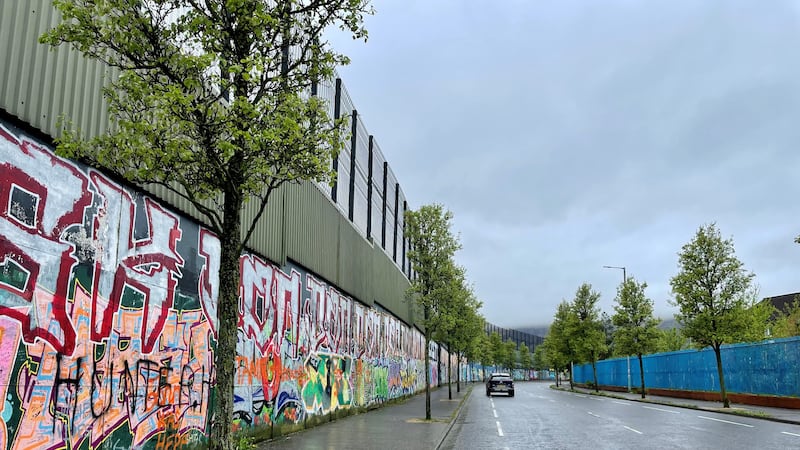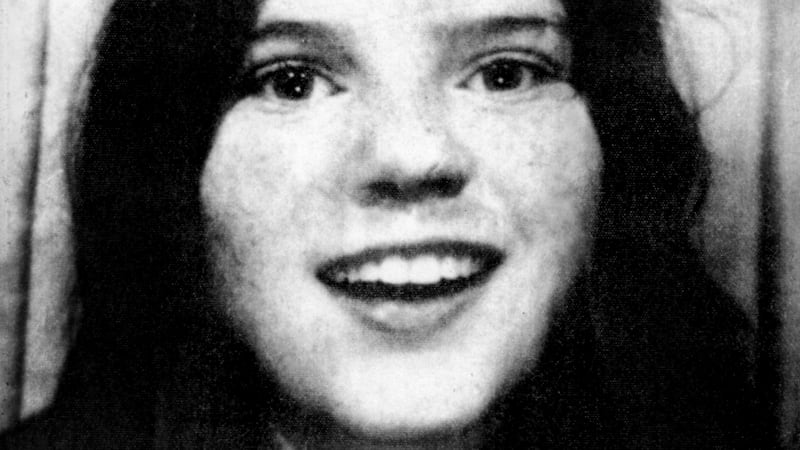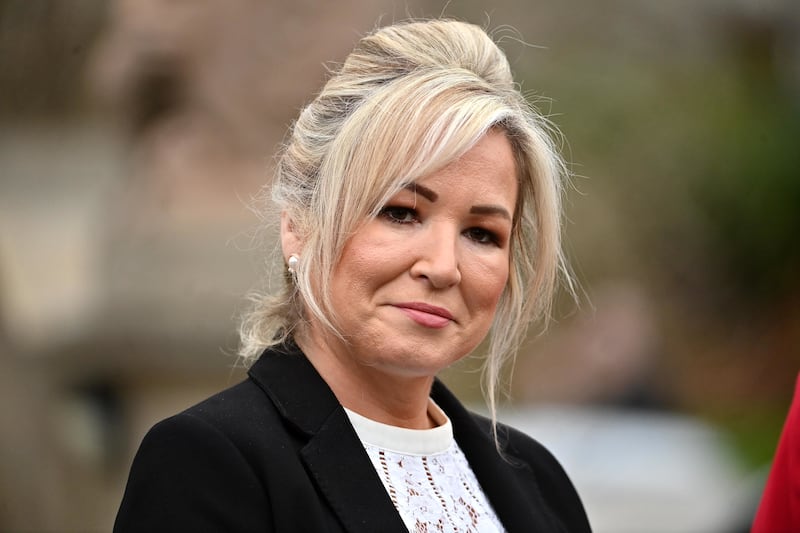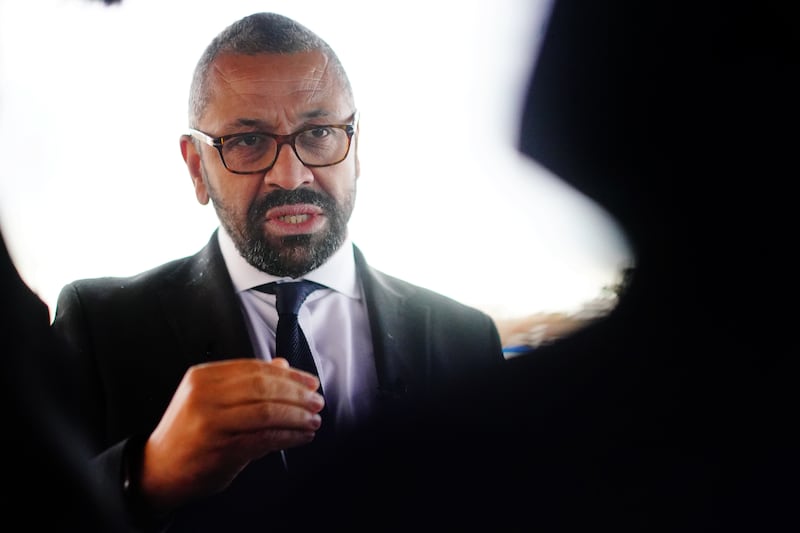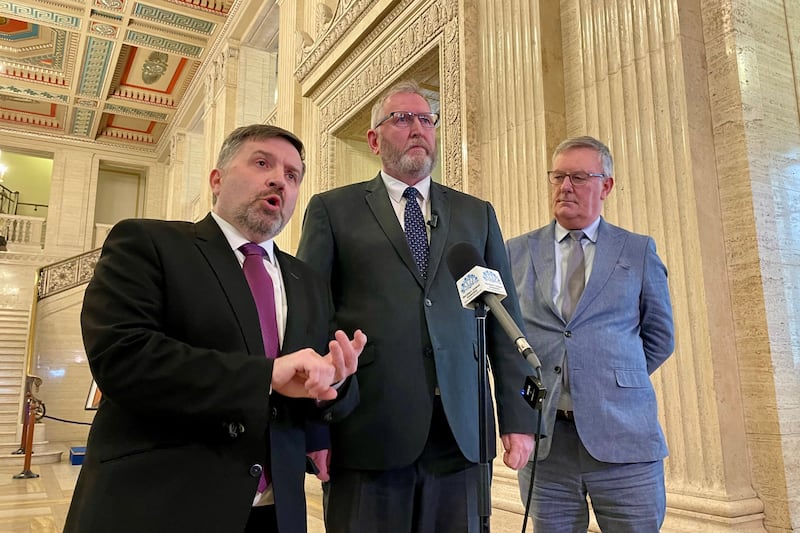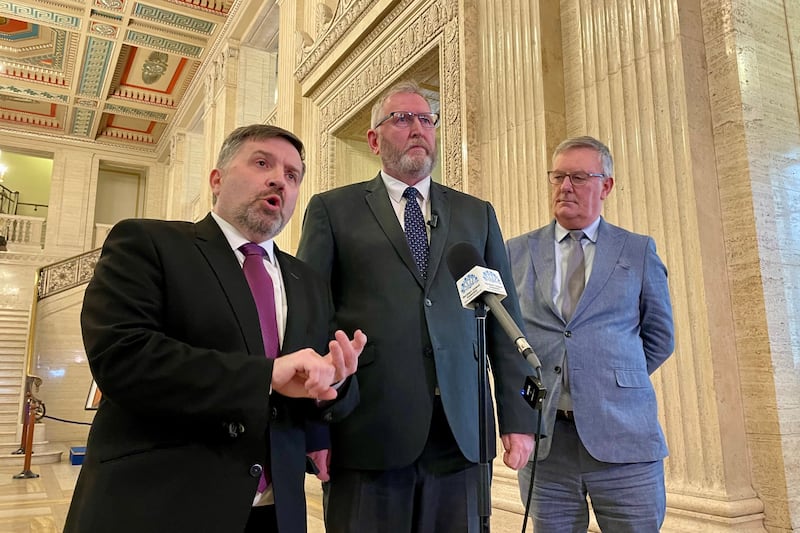Sinn Fein has vowed to press for the implementation of stalled recommendations on dealing with flags and cultural issues in Northern Ireland, blaming the lack of progress on an “abject failure” of unionist leadership.
The pledge is contained in a new policy document on ending sectarianism and other forms of hate in the region.
The Ending Sectarian Segregation document, which was launched by party vice president Michelle O’Neill on Wednesday, voices support for integrated and shared education and sets out measures to promote regeneration in areas still divided by so-called peace walls.
A Commission on Flags, Identity, Culture and Tradition (FICT) was set up in Northern Ireland in 2016 in a bid to find consensus on a number of contentious issues, but the collapse of devolution in 2017 delayed the delivery of its report.
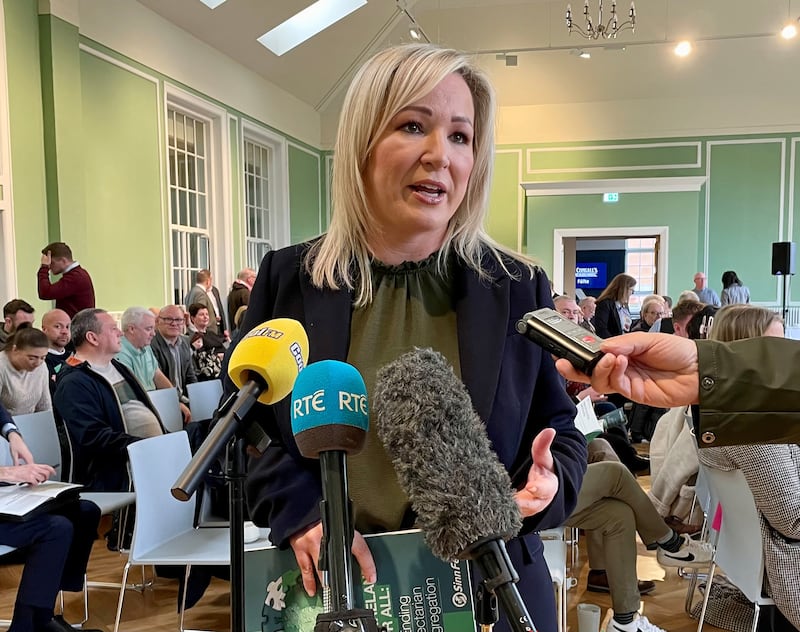
Its findings were submitted to the Executive in July 2020, and were finally published in December 2021.
- Council to vote on illuminating Belfast City Hall in Irish flag colours to mark birthday of President Michael D HigginsOpens in new window
- Public urged to bring Palestinian flags to St Patrick’s Day celebrationsOpens in new window
- Sinn Féin condemned after use of tricolour at IRA bomber’s funeral, a week after criticising flag’s appearance on Pearse McCauley’s coffinOpens in new window
The report made 44 recommendations, but was unable to find consensus on a number of issues including changing legislation around the flying of flags from lampposts.
When the 168-page report, which cost approximately £800,000, was published, there was criticism that it was not accompanied by a plan for implementing its recommendations.
Sinn Fein has said it will now press for such an implementation plan within the restored executive, blaming unionists for the lack of progress before the last collapse of devolution in 2022.
The party said the report did not provide all the solutions but did offer a “roadmap” to address issues around division and suggested ways that culture and tradition can be celebrated and commemorated on the basis of “equality and mutual respect”.
The Sinn Fein policy paper said: “However, Unionist political opposition within the powersharing Executive resisted all attempts and subsequent deadlines to present a plan to the full Executive on implementation of the report’s recommendations.
“This represented an abject failure of political leadership.”
It said implementation of the report now devolution has returned will be “challenging” but it said producing a plan to do so was the “correct thing to do”.
In regard to legacy issues, the document restates Sinn Fein’s support for the mechanisms set out in the Stormont House Agreement of 2014.
The party also said it will seek support for a National Reconciliation Day to remember all victims of conflict on the island of Ireland.
The policy paper was published in the same week that peace-building organisation the International Fund for Ireland (IFI) allocated almost £2.5 million for six projects in Belfast and Derry to help bring about the conditions within communities to facilitate the removal of peace walls.
Launching her party’s document at an event in Belfast, First Minister Ms O’Neill said there was a need for a “step change” to tackle sectarianism in Northern Ireland.
“The recent restoration of our political institutions provides new energy, new opportunities and real hope,” she said.
“The institutions are based on partnership, inclusion, respect, and equality.
“Powersharing allows us to plan, work and deliver together.
“These are not just words, as public representatives we have a responsibility to work for all our people whatever their background or political allegiances.
“As political leaders we must focus on the opportunities that a restoration of the Executive and Assembly provides.
“We need to see now, a real step change in confronting and tackling sectarian attitudes and structures.
“People need to meet each other halfway. We need to accept that there are different perspectives and try to understand each other.
“We need to acknowledge each other’s concerns and we need to remove the physical barriers in our communities and also, importantly, the barriers in our heads and in our hearts.
“I have great hope and optimism for the future.
“Together we can build a reconciled, accommodating, inclusive society that we all call home.”
